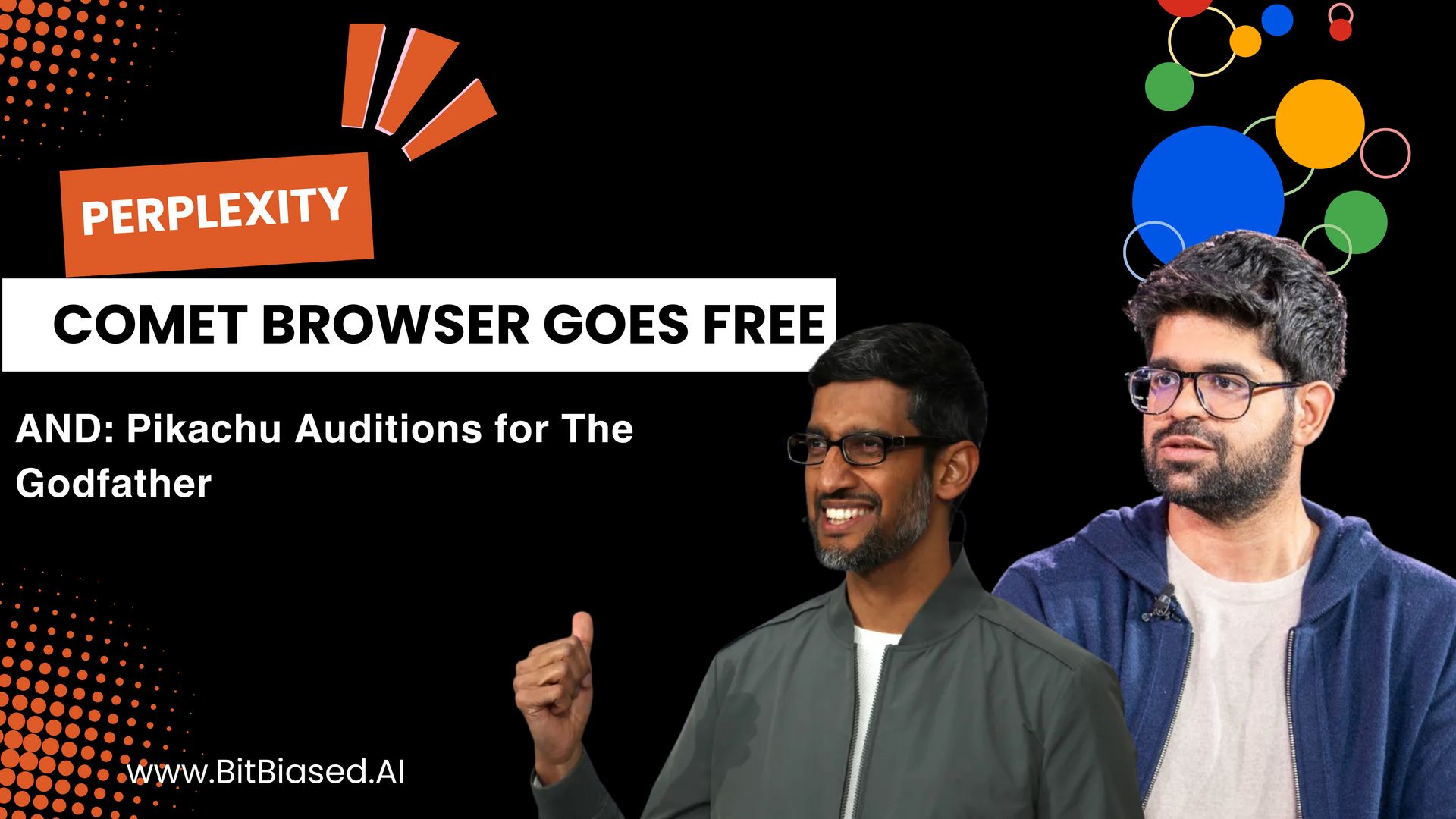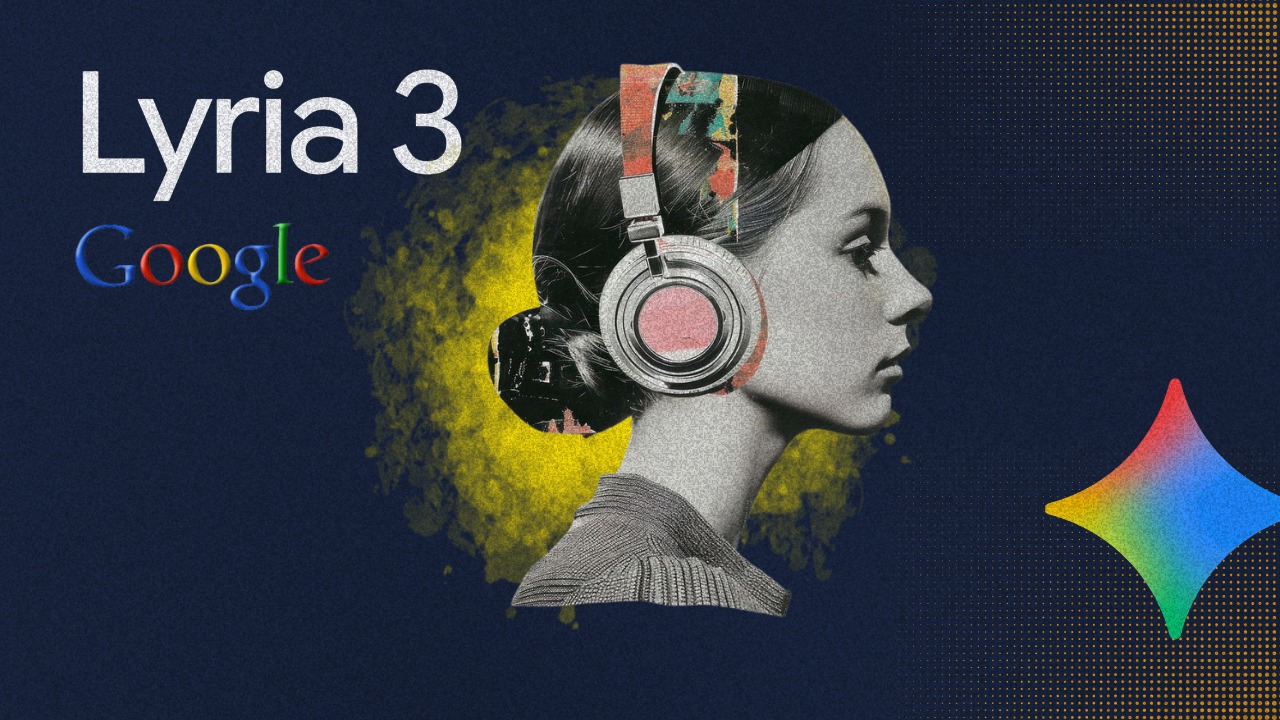
Welcome, Humans!
Ready for your daily dose of AI chaos? I’ve rounded up Today’s Top AI Headlines for those who like to stay ahead – and for the curious, I’ve got some eyebrow-raising stories Beyond the Headlines. Let’s dive in.
In a Nutshell:
Perplexity makes viral AI browser Comet free
Google plugs Jules coding agent into dev tools
Harvard quantum computer runs nonstop for hours
Pikachu recasts Hollywood classics in AI trend
THOR AI solves century-old physics puzzle
🚀Today’s Top AI Headlines:

Perplexity Makes Comet Browser Free: Perplexity, the AI-powered search startup, has announced that its viral Comet browser is now free to use. Comet has been gaining traction thanks to its unique “sidecar assistant,” an AI feature that sits alongside webpages and provides real-time summaries, answers to user questions, and even navigation support. By removing the paywall, Perplexity is aiming to scale adoption quickly and position itself as a strong competitor to Google’s Chrome and Microsoft’s Edge in the AI browsing space.
For paying subscribers, the company is rolling out new premium perks to keep the upsell attractive. This includes an AI-powered email assistant that helps manage inboxes, draft responses, and organize schedules. Another key premium feature is the “background assistant,” a multitasking dashboard that allows users to queue multiple requests and have them processed simultaneously. For example, while a user is researching a topic, the assistant could summarize several related PDFs, monitor relevant news updates, and draft a comparison chart, all in the background. By splitting its features across free and premium tiers, Perplexity is trying to maximize user growth without losing subscription revenue. With AI search heating up, this move signals a bold step in the company’s expansion strategy.
Source: Perplexity🤖 Robi: “Yet another browser fighting Chrome. I’ll stick with my stone tablet, thanks.”
Google Expands Jules AI into Dev Tools: Google is taking its Jules AI coding agent beyond its initial test phase and integrating it into popular developer tools such as terminals, Slack, and IDEs. Jules was originally introduced as a supportive AI pair programmer, but the latest update gives it far more autonomy. Developers can now authorize Jules to run tasks on its own, allowing it to complete multi-step coding workflows with minimal human intervention. This shift could save teams hours of manual debugging and streamline collaboration across distributed environments.
The new Slack integration is particularly noteworthy. Developers can now ask Jules to run code snippets, fetch documentation, or even resolve minor bugs directly from their team chat. In terminal environments, Jules is capable of executing approved commands and verifying results, which makes it useful for DevOps workflows. Google emphasizes that autonomy is limited by permissions, ensuring developers retain control while still benefiting from automated task execution. Industry experts view this as part of a growing trend toward agentic coding, where AI tools aren’t just assistants but collaborators capable of carrying out jobs independently. By embedding Jules deeper into developer ecosystems, Google hopes to build loyalty among engineers and strengthen its position in enterprise AI tools.
Source: Tech Crunch🤖 Robi: “Imagine an AI in Slack that actually fixes bugs instead of starting threads.’’
Harvard Quantum Computer Runs Nonstop: Harvard researchers have achieved a major breakthrough in quantum computing, addressing one of the field’s biggest roadblocks: machine runtime. Traditional quantum computers, while powerful, could only operate for seconds at a time because of qubit instability. Qubits—the quantum bits that power these systems—are notoriously fragile and prone to “disappearing,” leading to data loss and system collapse. Harvard’s new system, however, introduces a method to continuously replace failing qubits in real time, effectively stabilizing the machine during operation. In recent experiments, the new quantum computer ran nonstop for more than two hours, a dramatic improvement over the industry norm. Scientists believe that, in theory, the system could run indefinitely as long as error correction is maintained. This achievement is seen as a leap toward practical, large-scale quantum machines capable of solving complex problems in chemistry, cryptography, and logistics that are beyond the reach of classical computers. While the technology is still in its early stages, the demonstration has set a new benchmark for sustained quantum computing. Industry analysts say this breakthrough could accelerate the timeline for commercially viable quantum systems by several years, making them more than just academic experiments and closer to real-world applications.
Source: The Harvard
🤖 Robi: “Great, now Schrödinger’s cat can suffer continuously instead of just briefly.”
🔍Beyond the Headlines:
Pikachu Takes Over Hollywood in AI Trend: A bizarre and hilarious trend is taking over social media: Pikachu starring in Hollywood classics. Creators are using AI video generation tools to reimagine the Pokémon mascot as iconic characters like Batman, The Godfather, and even Jack from Titanic. The mashups blend humor with uncanny realism, leaving viewers both entertained and unsettled. While many fans love the creativity, critics argue it underscores how AI tools could blur the lines between parody and copyright infringement. Regardless, the “Pikachu takeover” has gone viral, demonstrating once again how generative AI is reshaping internet humor and pop culture remixing.
Source: Game Spot🤖 Robi: “I’d watch Pikachu as Batman, finally, a hero who squeaks instead of broods.”
THOR AI Solves Physics Puzzle: Researchers from the University of New Mexico and Los Alamos National Laboratory have unveiled THOR AI, a framework that cracks a century-old challenge in statistical physics: computing configurational integrals. These integrals describe how atoms interact and move inside materials such as gases, metals, or crystals, but have historically been too complex to calculate precisely. THOR AI uses advanced machine learning to handle these computations efficiently, providing insights into atomic behavior at unprecedented scale. The breakthrough has implications for materials science, chemistry, and energy research, opening the door to designing stronger, more efficient materials.
Source: Los Alamos
🤖Robi: “Solving century-old math puzzles while I still can’t solve my captcha.”
🤖Prompt of the Day:
Investment Strategy Plan
Prompt: You are a financial advisor specializing in strategic investments. Your task is to create an investment strategy plan for a [business type or niche] with [budget/investment amount].
Your framework should include: (1) risk tolerance and portfolio design, (2) capital allocation to growth initiatives, (3) ROI analysis of potential investments, (4) diversification strategies, (5) performance monitoring systems, and (6) KPIs such as IRR, payback period, and portfolio yield.
🤖AI Tools You Didn’t Know You Needed:
Problem: Managing tracking plans and event documentation across teams often leads to misalignment and inefficiencies.
AI Solution: AI-powered platforms integrate tracking documentation directly into design tools, streamlining workflows and enhancing collaboration.
AI Tool: Glazed Analytics is an AI-driven platform that helps teams create, document, and implement tracking events directly from Figma designs, eliminating developer handoffs and reducing coordination delays.
Helpful Features
Visual Tracking Plans: Create tracking documentation within Figma.
AI Event Suggestions: Automatically generate event names and properties.
Seamless Integration: Connect with analytics platforms like Amplitude and Mixpanel.
Real-Time QA: Monitor tracking health and catch issues before they reach production.

⚡ Robi’s Hot Take on X






